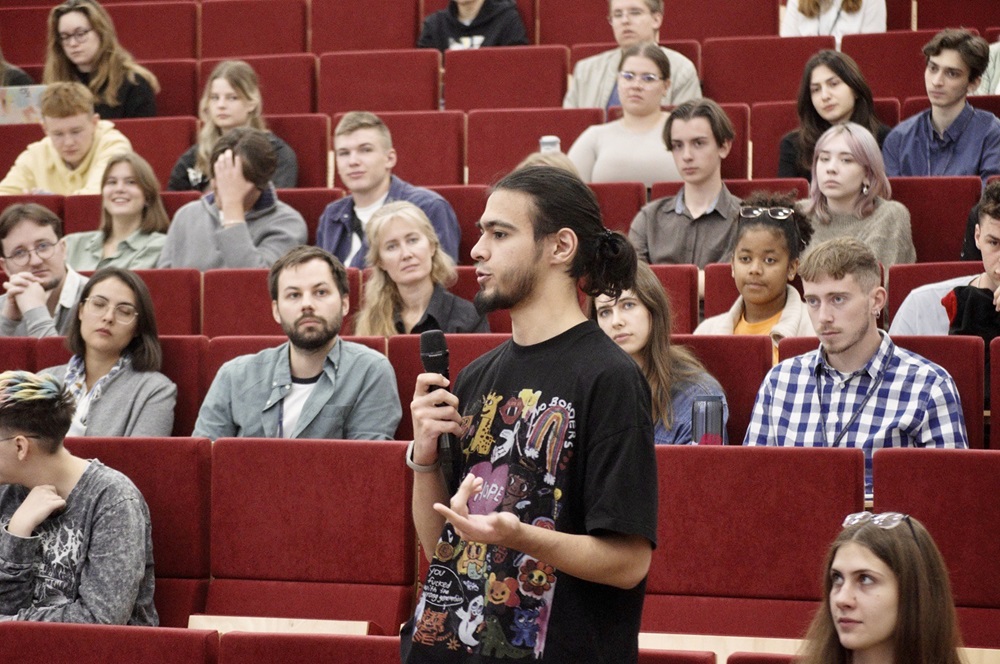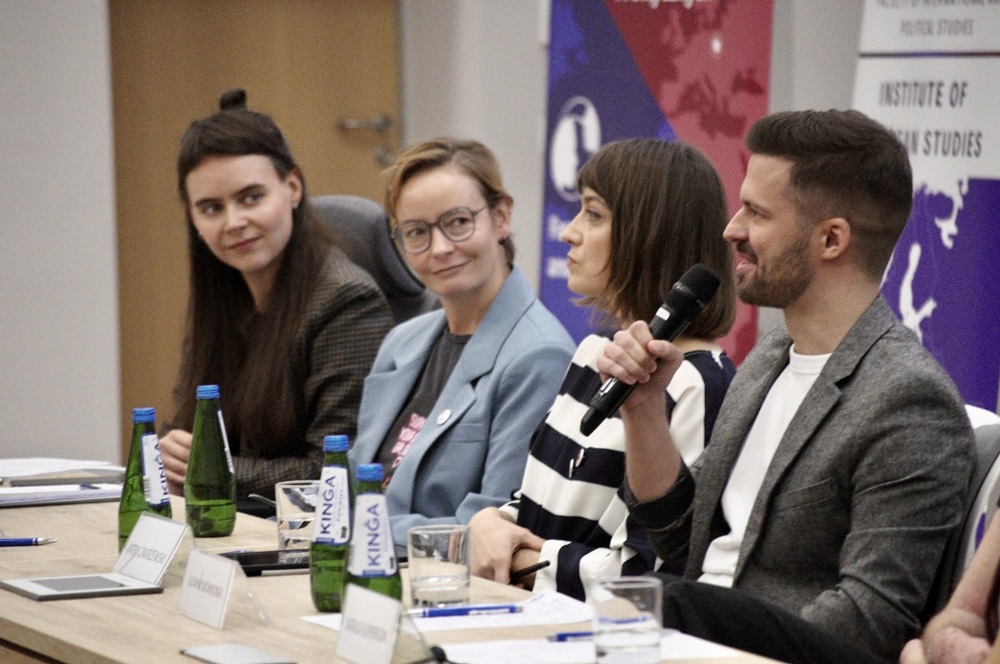- Short summary of the event, key messages/ testimonies collected at the event
The event, lasting 2 hours, comprised an expert panel (app. 1 hour) and a public debate (app. 1 hour). It was held on 6 October 2023, from 10 am to 12 am.
The expert board was composed of 6 persons: Dr. Joanna Grzymała-Moszczyńska (Institute of Psychology, Jagiellonian University – a scholar specialising in social psychology and mass psychology), Ewa Stoecker (JU, psychologist and anti-discrimination trainer, member of staff at the SafeAtTheJU unit), Patryk Zakrzewski (board member of the Demagog.org fact-checking NGO, fact-checking trainer and mentor), Aleksandra Migalska (JU, sociologist, member of staff at the SafeAtTheJU unit), Julian Skowronek (chair and co-founder of the TęczUJ, an LGBTQIA+ student organisation at the JU, activist) and Natalia Superson (deputy chair and co-founder of the TęczUJ, an LGBTQIA+ student organisation at the JU, activist).
During the panel the experts discussed the following topics: (1) the definition of disinformation, (2) the nature and political context of disinformation, (3) sociological and psychological mechanisms responsible for the spread and popularity of disinformation, (4) practical ways of recognising and targeting disinformation, (5) situation of LGBTQIA+ persons in Europe and practical challenges they face, (6) the context of discrimination against LGBTQIA+ persons in Poland, (7) the role of universities in targeting disinformation creating a safe environment for LGBTQIA+ persons, (8) practical challenges encountered in addressing disinformation.
The ensuing debate involved numerous participants asking questions and addressing panelists’ statements. There were altogether 11 persons taking the floor, discussing topics such as: (1) the abilities to get across to those who have been disinformed, (2) differences in situations that LGBTQIA+ persons face in European countries, (3) situation of LGBTQIA+ persons in non-EU states, (4) political abuse of disinformation, (5) role of the academia in targeting disinformation and (6) practical challenges of youth LGBTQIA+ organisations. The debate was concluded with applause and thanks to the experts and participants.
The key testimonies collected during the event were delivered by LGBTQIA+ persons who themselves were targeted by disinformation and discrimination. Especially participants currently residing in the EU, but coming to non-EU countries, such as Georgia and China, pointed out how the situation of LGBTQIA+ persons has become a hostage of political tensions in these countries. They expressed a call for strengthening of the message for LGBTQIA+ rights protection in the EU foreign policy.
In general, participants underlined the political dimension of disinformation on LGBTQIA+ persons and postulated that public authorities, including the EU, combat it actively. Additionally, the role of NGOs in dispelling myths and fallacies was underlined.
Live polls were taken before and after the event. After the debate discussions continued in small groups – the experts were available to the attendees for another hour.
- Information about participants
There were 75 participants of the public debate. 92 persons preregistered earlier, out of which some did not appear; further persons registered on the spot. In total, they came from 16 different countries, 10 EU states and 6 non-EU countries. Most participants were residents of Poland, followed by Italy and France (from EU countries) or China, Belarus and the US (from non-EU countries). Majority of participants identified as female (44, 59%), followed by male (25, 33%), non-binary (2, 3%). 4 persons (5%) preferred not to declare themselves.


